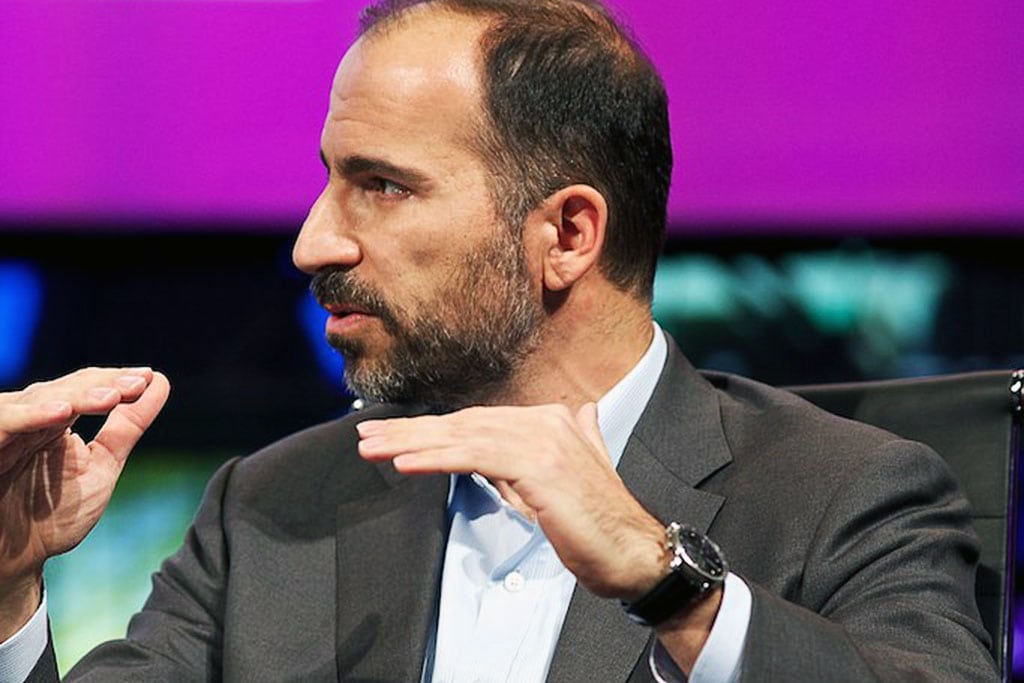Interview: Expedia CEO Envisions Direct Competition With Airbnb Over Next Few Years

Skift Take
The competition between HomeAway, which primarily features vacation rentals in resort areas, and urban-oriented Airbnb hasn’t been head-on for the most part.
But Dara Khosrowshahi, CEO of Expedia Inc., which is in the process of acquiring HomeAway, believes the battles between Expedia and Airbnb, and Booking.com, will become increasingly direct over the next few years.
“I would say from the start to the next two to three years, we’re [Expedia-HomeAway and Airbnb] going to be working in parallel with similar solutions, but in different markets,” Khosrowshahi said. “I think in three to five years, we will increasingly move into the urban space. And certainly Hotels.com, Expedia, Orbitz, and Travelocity bring a lot more urban demand, and I think we’ll take advantage of that urban demand to build up Homeaway’s supply in those urban destinations. Then you are going to get competition. Direct competition.”
Skift sat down with Khosrowshahi November 19 at the Phocuswright conference in Florida, and we discussed the alternative lodging market; Expedia’s take on TripAdvisor and Google emerging as booking venues; Expedia’s position in China, and other topics.
Skift: HomeAway indicated in the proxy statement that one of the reasons they were interested in a deal was because the business model risks associated with their shift to online booking and introducing a traveler fee for the first time. Do you feel like Expedia’s integration of HomeAway is going to be the most difficult one you have to do in relation to your integrations of Wotif Travelocity, and Orbitz Worldwide? Is the integration of HomeAway going to be the most challenging one?
Dara Khosrowshahi: It’s going to be quite different. All of them are challenging. None of this stuff is easy. What’s different about HomeAway is while they will join the Expedia family, it’s not going to be the heavy platform integration that you had with a Travelocity and what we are undergoing with Orbitz. It’s going to be more our helping HomeAway with that transition from a listing business to a transactional business. It’ll be a different kind of integration. It’ll be our teams working closely with theirs in order to draw them through this process.
Skift: You’ve mentioned a couple times that travel is a $1.3 trillion dollar industry and there will be multiple winners. But what kind of impact do you think your acquisition of HomeAway will have on the competitors such as Airbnb, Booking.com, and the wider vacation rental and apartment space? You’ve said that apartments are going to become efficiently important to you.
Khosrowshahi: The overlap between these businesses, at this point, is actually relatively small in that Booking.com and Airbnb are much more focused on apartments in urban destinations. HomeAway is much more focused on full homes that are not your primary home in resort destinations.
Skift: Weren’t you the one that was talking about the convergence of everything?
Khosrowshahi: Indeed. I said I do think that in the early years, I would say from the start to the next two to three years, we’re going to be working in parallel with similar solutions, but in different markets. I think in three to five years, we will increasingly move into the urban space. And certainly Hotels.com, Expedia, Orbitz, and Travelocity bring a lot more urban demand, and I think we’ll take advantage of that urban demand to build up HomeAway’s supply in those urban destinations. Then you are going to get competition. Direct competition. But, we have had direct competition with Booking.com for a long time. It’s an environment that we are comfortable with. Even the Homeaway-only market is a $100 billion-plus marketplace. There’s plenty of room here for lots of players.
Skift: You’ve made a few acquisitions recently.
Khosrowshahi: Just a few.
Skift: I know you’re not going to tell me who you are going to acquire next [jokingly whispers GetYourGuide]. Are you done for awhile?
Khosrowshahi: Jeez I hope so [laughter]. You can never predict when opportunity thrusts. This a period in time when the cost of capital is pretty low. So part of our job is to operate a business and execute really well. The other part of the job at my level is to be a capital allocator so this is a particularly good time to go out and acquire assets, and then consolidate them over a period of time. I think the team has a lot on their plate, but I feel like we are in a position to continue to execute.
Skift: Why are you so excited about selling airline tickets?
Khosrowshahi: Because we sell other stuff with the airline tickets. Air is a complex problem. Unit economics are quite difficult. Airlines have done a terrific job for them, not for us, in driving down economics. Those products then become difficult products for other players that don’t have our scale to get into.
We haven’t seen a significant amount of capital or innovation in air for awhile because it hasn’t attracted that much capital. We think it’s a good opportunity. We are full steam ahead in investing in air technology and product. We have seen it improve our unit volumes, and now we’re moving to really interesting areas like up-selling fare classes, up-selling baggage, all kinds of ancillaries, which our airline partners are particularly excited about.
I think we can really make a transition from being a transactional player to being a real partner for the airlines and we’re really going along that path.
Skift: The SkyScanner people told me yesterday that as a meta they are going to start doing seat upgrades for British Airways. They are going to be taking bookings and the seat upgrades are a new arena for metas.
Khosrowshahi: Absolutely, and we are doing the same. We are testing that with American, as well. That’s higher yield for the airlines, and it really works out for them.
Skift: You just announced a rail partnership with SilverRail, and how do you see that playing out? Also do you have any interest in some of the multimodal solutions such as Rome2Rio is doing or is that just too small at this point?
Khosrowshahi: I think on rail, we view it very similar to air, which is it’s a super-important transportation mechanism, more important in Europe and Asia, which are markets that we are particularly targeting for growth on a go-forward basis. The context of rail, where you’re going, allows us to be quite effective in up-selling hotels, upselling activities and destination.
It’s a context that some of our competitors don’t have. It’s right along the air playbook. We don’t expect to make much money on a rail ticket. It’s really being more relevant to the consumer and serving them better as a result and building frequency and familiarity and hopefully loyalty with them. That’s really what the rail play is.
Multi-modal for us, I think it’s a neat technology. I think that it will be a niche technology for some period. If you answer, if you try to answer too many questions at once, you are radically increasing your chances of getting one of them wrong. If somebody asked me a question, how are you getting from A to B, and there are seven steps that you need to get from A to B, and if you get one of those steps wrong, yours is wrong.
The human brain is actually wonderful at solving those problems. At this point, from what I’ve seen, the human brain is better at solving those problems than a computer. Over a period of time, the computer is going to get better. While I say never say never in multi-modal, I think it’s quite early in the evolution.
Skift: What’s your story in China? You sold eLong and you have an investment in Ctrip, right?
Khosrowshahi: Yeah, we have a good partnership with Ctrip as far as powering outbound package inventory. We have a very strong relationship with eLong as well, and we’re working with Qunar in our private label business. We’re really working with a number of players, we’re really focusing on the outbound Chinese traveler. In China, obviously we had a big investment with eLong, and what we found is that the economics of the domestic Chinese traveler business was less attractive.
Skift: Maybe it’s getting more attractive now that Qunar and Ctrip have teamed up.
Khosrowshahi: It could be, but the consolidation has to happen in order for the economics to become more attractive. We obviously did very well in our eLong investment, and now we are focusing on an area that we think would have a lot of value, which is outbound China, which is obviously going to be huge wave on a go-forward basis.
Our hotel partners and our air partners want access to that outbound traveler. We can certainly give them access through partnership. And we’re also building on an organic basis. We launched Expedia China, a hotel-only site. We’ll look to build it organically over a period of time.





